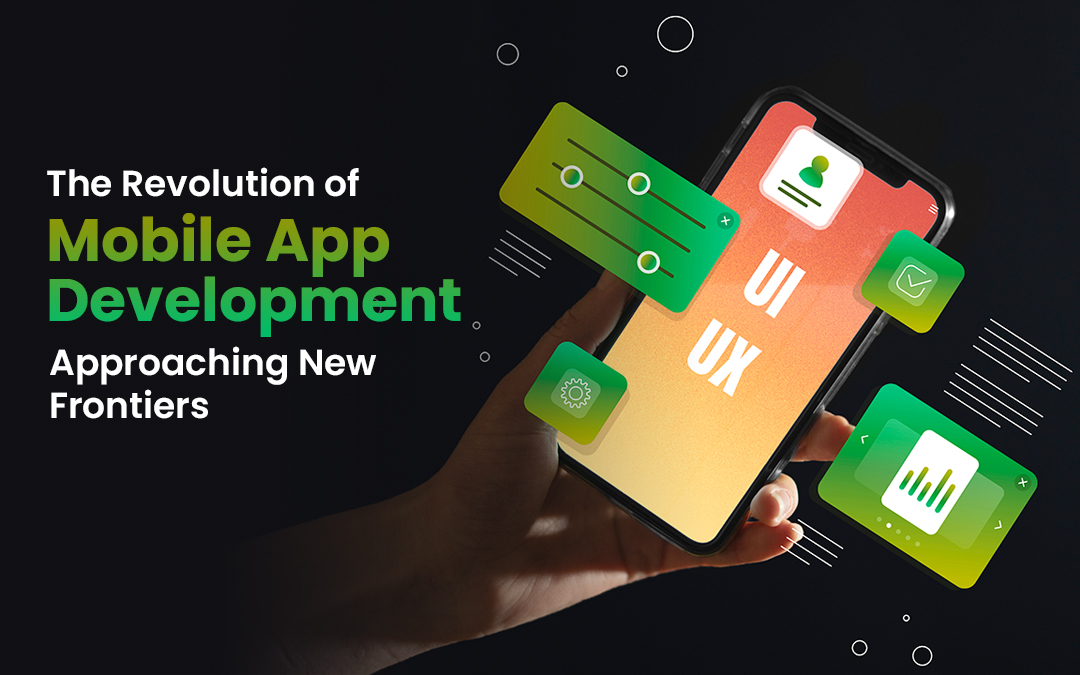
Some technologies profoundly affect the world around us. The Internet completely changed our lives, and before that, it was electricity and so forth. In today's fast-paced life, the effect of new technologies remains subtle and often goes unnoticed.
Mobile applications are an example of how technology has changed daily life. It is hard to imagine that in just over a decade, they have evolved from simple utility tools to complex software that entire industries rely on.
This trend shows the journey of mobile app development from its novel origins to the indispensable part of the modern world.
Where will this journey lead to? This article explores the developments that are set to revolutionize mobile app development.
What is Mobile App Development?
Mobile app development creates software products that run on mobile devices. These apps are developed for specific operating systems made for the device, such as Android and iOS.
Creating mobile apps is a systemic procedure that involves the following steps:
- Idea and Planning
- UI/UX Designing
- Development
- Testing
- Deployment
- Maintenance
History of Mobile App Development
The Beginning of Mobile Apps
Mobile applications trace their roots to the late 1990s with Nokia’s snake game in 1997, often considered as the first mobile app.
Early applications were simple and pre-installed. Their scope was limited like basic calculators and calendars.
The catalyst for mobile app development was the release of the Apple App Store in 2008. It offered a platform for developers to create and globally distribute apps. This initiative by Apple later became the precedent followed by other giants like Google.
Why Mobile App Development Took Off?
The mobile application boom happened in the 2010s, with the number of mobile app downloads tripling in a few years. Several factors contributed to this rise:
- Proliferation of Smartphones: Smartphones have become much more affordable and prevalent. This proliferation demanded mobile-first experiences and the need for better mobile apps.
- Internet Connectivity: The introduction of 3G and 4G made the internet more accessible and faster, leading to apps with more functionality.
- Consumer Trends: The trend of personalized experiences made mobile apps a preferred choice for consumers, and businesses had to transform.
- Advanced Developing Ecosystems: The advancements in mobile app development frameworks and tools have made creating mobile apps easier.
The Coming Mobile App Development Revolution
The mobile app industry is a burgeoning field that shows no sign of slowing down. There are emerging technologies that will define the next generation of mobile applications. These are some of the mobile app development trends that will reshape the industry:
1. AI-Powered Development
AI-powered development is a transformative force in mobile app creation. It is set to revolutionize the industry through the fusion of AI and mobile app development. AI-driven tools can assist app development in:
- Code Generation
- UI/UX Design
- Testing and Debugging
2. 5G Technology
The coming of 5G internet will significantly enhance app performance and enable real-time interactions such as AR/VR. 5G will allow the development of more data-intensive apps with faster loading times.
3. Predictive Analytics
Mobile apps are now capable of making future predictions based on analytics and historical data. They will transform healthcare and finance industries with predictive analytics and better decision-making.
4. Super Apps
Super Apps is a rising trend in mobile app development that offers multiple services using a single mobile app. Some of the popular super apps in use are:
- AliPay
- Grab
- Careem
Their growing popularity represents the shift towards comprehensive apps that can cater to diverse needs.
5. Voice User Interfaces and Gesture Control
The rise of speech detection indicates the shift towards mobile apps optimized for voice commands. Natural language processing will provide users convenience and redefine user-app interactions. Gesture control-based apps rely less on visual elements and use physical movements such as waving and swiping to interact with an app. In-app gestures will become more common in the future as they allow for better usability.
6. IoT and Wearable Technology
Wearable technology is electronic devices that users can wear. These devices are at the forefront of the Internet of Things (IoT). Some of the popular wearable devices are:
- Smartwatches
- Smart glasses
- Tracking wristbands
- Body sensors
As these devices become common, mobile application development will focus on creating apps that can connect to and work with the latest wearable tech.
7. Blockchain Integration
Incorporating blockchain technology into mobile apps is a growing trend in mobile app development. Blockchain technologies facilitate transactions between multiple actors. Integrating them with mobile applications enables faster and more transparent transactions. This feature is relevant to apps in finance and banking.
Conclusion
Innovative trends and technologies define the future of mobile app development. It has boundless potential to transform our lives, from daily tasks to addressing global challenges. Mobile apps have redefined how we interact with our world, and the future of mobile applications promises even greater possibilities. This article provided you with the necessary insights to navigate the evolving future of mobile app development.
Share this post
Leave a comment
All comments are moderated. Spammy and bot submitted comments are deleted. Please submit the comments that are helpful to others, and we'll approve your comments. A comment that includes outbound link will only be approved if the content is relevant to the topic, and has some value to our readers.

Comments (0)
No comment